The Healthy Relationships Project®
The school-based component of the Healthy Relationships Project® includes four developmentally appropriate programs designed to promote child safety and healthy relationships. Each program features student lessons, parent events, parent newsletters, and training for educators, staff, and administrators—creating a comprehensive, community-based approach to prevention and education.
To place an order by phone, call: 1-800-975-7147
Click on your state in the map above to see whether the Healthy Relationships Project meets your state's requirements.
Blue states have legislative mandates for child sexual abuse prevention education in schools.
Purple states encourage this type of education through legislation.
Orange states do not currently have mandates, but the Healthy Relationships Project can still be implemented voluntarily.
-
This curricula meets requirements of:
Erin’s Law in Alabama, Connecticut, Delaware, Illinois, Georgia, Louisiana, Mississippi, Minnesota, New York, New Jersey, Oregon, Oklahoma, Rhode Island, Tennessee, and Washington
Utah's Child Sexual Abuse Prevention Amendment
Indiana’s Child Sexual Abuse Prevention component of the Mandatory Curriculum
Child sexual abuse prevention education component of the law, Ohio
Washington D.C.’s School Safety Omnibus Amendment
Wyoming’s Title 21 Section 21-9-104
West Virginia’s Body Safety and Sexual Abuse Prevention law
Virginia’s Child Sexual Abuse component of the Family Life law
Maine’s Child Sexual Abuse Prevention & Response Model Policy
The Child Sexual Abuse component of the Texas and Colorado prevention laws
New Mexico’s Child Sexual Abuse training mandate for schools
The Child Sexual Abuse component of South Carolina’s Comprehensive Health Act
North Carolina’s Sex Trafficking Prevention law
The Child Sexual Abuse Prevention component of laws in New Hampshire and Missouri
The Child Sexual Abuse Prevention component of the Michigan Revised School Code
The Child Sexual Abuse Prevention component of Florida’s Health Education
Maryland’s legislative requirements found in Maryland’s Education Codes § 6-113.1 and § 7-445.
Vermont’s child sexual abuse prevention education mandate (commonly called Act 1)
Note: The Healthy Relationships Project is listed as an approved program in Georgia’s Child Sexual Abuse and Exploitation Prevention Technical Assistance Resource Guide (TARG- 2024 update).
Many States list this programming on the list of approved curricula. North Dakota's Child Sexual Abuse Prevention Guide lists the Healthy Relationships Project as well as the Adult Responsibility Project as approved programs.
If you require assistance in researching for your state contact Marcie at mhambrick@pcavt.org.
The Healthy Relationships Project is recognized as a promising strategy for preventing child sexual abuse in international communities by the Eradicating Child Sexual Abuse Project of the Lucy Faithfull Foundation.
A CDC Funded Evaluation of Care for Kids © and We Care Elementary © is Underway
Developmentally Targeted Curricula
The Healthy Relationships Project® includes four developmentally appropriate programs designed to promote child safety, prevent child sexual abuse, and address problematic sexual behaviors. Each curriculum includes student lessons, educator training, and family engagement components.
Program Overview:
Care for Kids (Pre-K – 2nd Grade)
We Care Elementary (3rd – 6th Grade)
SAFE-T (Sexual Abuse Free Environment for Teens) (7th & 8th Grade)
Project SELFIE (Safe Expression Online for Internet Empowerment) (7th – 12th Grade)
All programs are:
Developmentally appropriate
Evidence-informed
Safety-supporting
Designed to reach both children who may be targeted and prevent problematic sexual behaviors.
Did You Know?
Schools can use federal and local funding to support the Healthy Relationships Project.
Under the American Rescue Plan Act (ARPA), schools are authorized to use funds for:
“Implementing strategies to meet the social, emotional, mental health, and academic needs of students hit hardest by the pandemic, including through evidence-based interventions and critical services like community schools.”
This makes the Healthy Relationships Project (HRP) an eligible use of ARPA funds.
Additional funding sources include:
Supporting Effective Educator Development (SEED) grants
Title IV-A
Every Student Succeeds Act (ESSA)
Project AWARE
These grants cover educator training that strengthens social-emotional learning, builds student resilience, promotes mental health and wellness, prevents child sexual abuse, and supports technology safety.
Other funding sources that have been used successfully:
Children’s Trust Funds
Kiwanis Clubs
Rotary Clubs
United Way grants
Prevent Child Abuse state chapters
In Vermont, the Vermont School Board Insurance Trust (VSBIT) has approved the Safety Assistance Grant for the purchase of HRP curriculum. Schools in other states may have access to similar programs through their insurers.
Need help with grant language?
Email Marcie Hambrick at mhambrick@pcavt.org for support.
Is My Kit Up-to-Date?
We regularly update our curricula to ensure they align with the latest research and empirical best practices. If your kit is outdated, you can easily update it to keep your prevention programming current, effective, and top quality!
Care for Kids — 6th Edition
We Care Elementary — 4th Edition
SAFE-T — 3rd Edition
Project SELFIE — 1st Edition
Other Languages
PCAVT offers translated materials in Spanish and Portuguese. For those who already own a kit, all Spanish and Portuguese components are easily accessible through our digital resource page, the HRP Hub. For more information on how to access the HRP Hub, please email Marcie at mhambrick@pcavt.org.
Care for Kids includes:
Spanish Language Parent Newsletters
Lesson Scripts in Spanish
Portuguese Language Parent Newsletters
We Care Elementary includes:
Spanish Language Parent Newsletters
Lesson Scripts in Spanish
SAFE-T includes:
Spanish Language Parent Newsletters
Healthy Relationships Project® Programs
Care for Kids
Pre-K – 2nd Grade
Care for Kids is an early childhood sexual abuse prevention curriculum designed for use by teachers, child care providers, and parents. It helps young children build a foundation of healthy relationship skills by focusing on communication, empathy, body awareness, developing positive attitudes toward sexuality, and understanding personal boundaries.
WCE
We Care Elementary
3rd – 6th Grade
We Care Elementary is a sexual abuse prevention curriculum designed for upper elementary students. Teachers are trained and supported to deliver developmentally appropriate lessons that foster healthy relationships and personal safety. The program includes staff training, take-home materials for parents, school newsletter content, and opportunities for schools to connect directly with PCAVT staff for ongoing support.
SAFE-T
7th – 8th Grade
SAFE-T (Sexual Abuse Free Environment for Teens) is a developmentally appropriate, safety-focused health education program for middle school students. It is designed to reduce the risk of both experiencing and perpetrating sexual abuse. The program emphasizes positive decision-making and healthy relationships. Training for educators, school staff, and parents is a key component, ensuring a unified approach to prevention.
Project SELFIE
(Safe Expression Online for Internet Empowerment)
7th – 12th Grade
Project SELFIE is a developmentally appropriate, safety-focused digital empowerment program designed to help adolescents navigate the complexities of online communication. Topics include distinguishing between consent, cooperation, and compliance in digital spaces; laws around sexting by minors; coping with peer pressure; responding to sexting requests (solicited or unsolicited); and being an empowered bystander.
The program consists of two interactive presentations that promote open discussion in a safe and supportive environment. It can be used on its own or as a companion to the SAFE-T curriculum.
Project SELFIE also includes a two-hour adult training—Project SELFIE: Keeping Youth Safe on the Internet—for parents, caregivers, school personnel, and professionals working with youth. This interactive session equips adults with tools to help protect teens from sexting, online grooming, pornography, and offline grooming facilitated through digital communication.
Dr. David Finkelhor, Director of the Crimes Against Children Research Center, praised the program:
“Project SELFIE stands out by being in tune with the culture and language of youth today. Its take on difficult topics is very refreshing.”
The CARE Program
Child Anti-Trafficking Resources and Education
Pilot Project Underway in Vermont
Child trafficking is a serious issue in the United States, involving both labor and sex trafficking. The National Human Trafficking Hotline received nearly 150 reports of child labor trafficking in 2014, with most victims being boys. In 2019, 877 children in 29 states were confirmed by child protective services to have experienced sex trafficking. Half of those cases also included another form of maltreatment.
Primary prevention efforts are still emerging. The first global framework for preventing child trafficking was released in 2022 (Jaffee et al.). Experts recommend a public health approach, since it is often difficult to predict which children are at risk. A social ecological approach—addressing individual, relationship, community, and societal levels—has also been recommended (Alpert & Chin, 2017).
Prevent Child Abuse Vermont developed the CARE Program to equip students, educators, and caregivers with the tools to recognize and prevent child trafficking. Designed for youth in grades 7–12, this initiative helps communities understand risk factors and build the protective factors shown to reduce harm.
The CARE Program includes:
Student Lessons – Two age-appropriate, safety-focused classroom sessions for youth in grades 7–12.
Faculty & Staff Training – CARING Adults (Child Anti-Trafficking Resources, Instruction, and Norms Growth) training to build awareness and prevention skills.
Parent Newsletters – Information for caregivers, including prevention strategies and what children are learning.
Parent Training Event – A CARING Adults training session designed to help parents and caregivers support and protect youth from trafficking risks.
If your Vermont middle or high school is interested in bringing the CARE Program to your community, contact Marcie Hambrick mhambrick@pcavt.org.







